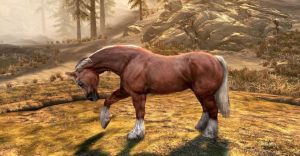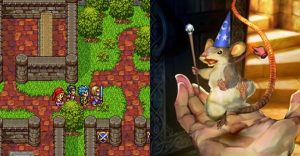Judgment’s Story Stands On Its Own Without Yakuza Cameos

With the release of Lost Judgment, the triple-threat lawyer, detective, and martial artist Yagami and his friends are already well-established characters. The original Judgment was a positive start to the series, and looking back on it, its remarkable restraint in avoiding cameos has paid off. Judgment began as a spin-off of the Yakuzaseries, set in the same fictional Tokyo district of Kamurocho, and included the same power groups, like the Tojo Clan. Many games, and other forms of media, have the stated intention of telling new stories in well-known fictional settings, but in most cases, cameos from the original are present, often overshadowing the developing story at hand. Judgment made the right call by showing restraint and avoiding any cameos from prior Yakuza games, allowing it to focus on telling Yagami’s story, and building Judgment into its own franchise.
When Judgment made its debut, it held great appeal for fans of Yakuza. Judgment features a similar real-time battle system to the original Yakuza games, one that evokes memories of classic beat-em-ups like Streets of Rage and River City Ransom, but with a new protagonist and story focus, making it a welcoming starting point for newcomers as well. As Yakuza: Like A Dragon shifted to a turn-based JRPG format, Judgment carried on Yakuza’s action tradition. Although Judgment features Yakuza’s setting and original gameplay legacy, it avoided cameos entirely. There are no appearances by Kiryu or Akiyama stealing the spotlight from Yagami, and familiar locations like the bar New Serena are inaccessible in Judgment.
Cameos of beloved characters are exciting for fans, but often overshadow the narrative that is unfolding. Tekken 7 included a story mode that promised to be the final word in the Mishima saga, but its inclusion of Street Fighter’s Akuma in the plot distracted from a focus on iconic Tekken characters and their unique lore. In film and television, Rogue One and The Mandalorian both told strong, self-contained stories within the Star Wars universe, but much of the focus surrounding these shifted to the cameos of characters like Darth Vader and Luke Skywalker, instead of the story itself. Seeing a beloved character appear in a piece of media is an easy way to please fans, but it typically comes at the expense of the new story, shifting the focus to nostalgia – instead of to engagement with the emerging narrative.
Judgment And Yakuza Share A Setting, But Not Tone

Judgment proved that cameos are not needed to win over fans, as its sprawling conspiracy – including a serial killer, crime syndicates, and medical malpractice – stood on its own merit. With Lost Judgment, the series continues to mature, now a proven franchise of its own, instead of just a spin-off existing in Yakuza’s shadow. Cameos in games are not always distracting, and it is difficult to deny their appeal, but Judgment was right not to go that route. With Yakuza: Like A Dragon, like its predecessors, focused on the world of Japan’s organized crime, the inclusion of familiar faces like Majima and Saejima, or the ability to summon Kiryu in battle, does not distract from Ichiban’s story in the same way it would in Judgment.
Despite their similar gameplay, the tonal differences between the Yakuza and Judgment series would have made cameos ill-advised, and the first Judgment title needed to prioritize its own characters and story. Yagami’s upbringing was closely tied with the Yakuza and the Tojo Clan, but he operates on a different paradigm, working with the law instead of outside it. Yagami is also more grounded than Kiryu, who is a larger-than-life figure who routinely survives wounds that would be fatal to a normal person and single-handedly defeats small armies of rival gangsters.
Bringing in Yakuza series alums would have done more harm than good for Judgment. The calculations that went into the design of the first Judgment game have paid off. Given the positive receptions of Lost Judgment and Yakuza: Like A Dragon, fans of both series have every reason to expect them to continue their momentum, delivering classic action gameplay paired with legal drama in Judgment games, and turn-based JRPG gameplay combined with crime-world melodrama in the Yakuza series.
About The Author















